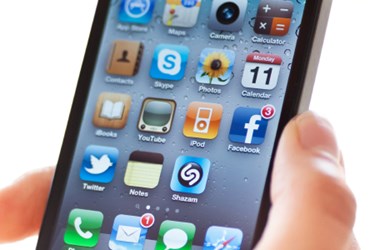mHealth Apps Still Miss The Mark When It Comes To Health Benefits

By Christine Kern, contributing writer

Study finds real clinical utility of apps is still inaccessible for people with chronic conditions.
While a proliferation of novel mHealth apps targeting high-need, high-cost populations exists, real clinical utility is still out of reach for people with chronic conditions, according to a study in the December issue of Health Affairs.
The researchers wrote, “With rising smartphone ownership, mHealth applications (mHealth apps) have the potential to support high-need, high-cost populations in making their health. While the number of available mHealth apps has grown substantially, no clear strategy has emerged on how providers should evaluate and recommend such apps to patients.” The result is a clear gap in access for the patients who could most benefit from these resources.
An Accenture survey found consumer use of health apps and wearables has doubled over the past two years people seek to take control over their own health and wellness. The study found mHealth app use increased from 16 percent in 2014 to 33 percent in 2016, while wearables use rose from 9 to 21 percent.
The Health Affairs study assessed 137 patient-facing mHealth apps that targeted conditions such as high blood pressure, obesity, diabetes, and depression. The apps were all highly rated by consumers and recommended by experts. The data demonstrated that, while there was lots of choice, few apps offered real benefits to the user, such as rewarding behavior modifications or giving guidance based on user-entered information.
A study from earlier this year found only 2 percent of patients were using mHealth apps at the nation’s major hospitals, suggesting there needs to be more connection between healthcare providers and patients when it comes to selecting and utilizing mHealth apps.
More than 165,000 mHealth apps are currently available to patients, according to the IMS Institute for Healthcare Informatics, while a survey by communications firm Ketchum found roughly 50 percent of all Americans currently utilize at least one mobile app for tracking health, fitness, or medication, though not all of them are FDA-regulated for safety and performance.
“Overall, we believe that the results we present suggest that the marketplace of mHealth apps targeting high-need, high-cost populations is maturing and is diverse enough that medical professional societies and patient advocacy groups should give serious thought to how apps may be used to benefit specific patients,” the researchers write. “Still, there are many gaps in the apps and substantial room for improving them.”
The researchers concluded that, moving forward, data privacy, and security will continue to be major concerns in the dissemination of mHealth apps, and that more oversight is likely necessary to protect users.
